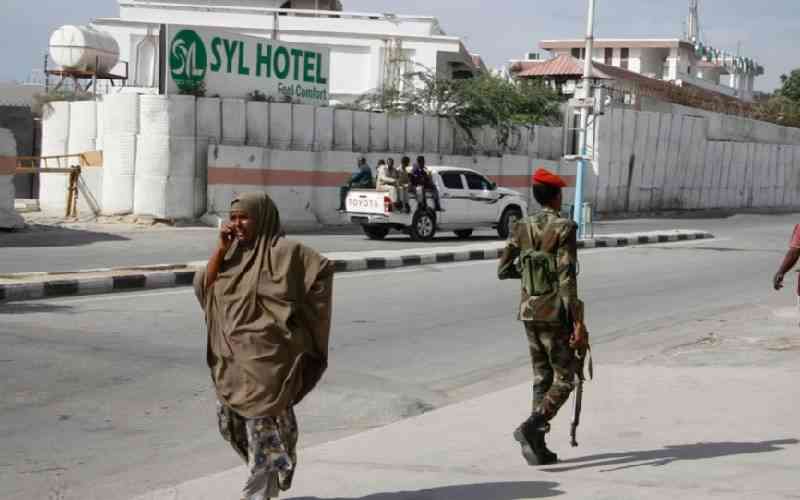
The plan, which was mooted last year, is among the measures that the Government announced would be put in place to deal with terrorism. The National Treasury is expected to allocate funds for this new prison in today’s Budget.
The separate prison is expected to deter extreme offenders from spreading their venom to vulnerable Kenyans held at various correctional facilities in the country.
A report by the Hans Seidel Foundation, which corroborates the recruitment from within, noted that Al Shabaab were exploiting Kenya’s ill-run prisons, turning them into thriving recruitment grounds.
In his latest State of Security report, President Uhuru Kenyatta said the Government’s counter-terrorism efforts had delivered a sharp reduction in the number of fatalities.
“Added to the strong efforts to dismantle terrorist’s operational capabilities, the Government has increased its focus on preventing and reducing the motivations underlying recruitment into terrorism,” reads part of the report.
The President said the Government had also begun building the wall between Kenya and Somalia in a bid to deal with the porosity of Kenyan borders.
In his earlier report, he noted that Al Shabaab operatives and the Amniyat – the intelligence wing of Al Shabaab - were keenly looking for fertile grounds to recruit, radicalise and possibly attack targets in the country.
The reported said terrorism, corruption and the proliferation of small arms remained among the top five threats to national security for the fourth.
The dynamism of terrorists’ motives, availability of new technology, access to new weapons and the use of media communication have enhanced the overall threat level.
“Not only has Al Shabaab introduced extremism and radicalisation into the region, it has also given the Somali Conflict a more global jihadist dimension,” read the report.
A protracted state of violent instability, long porous borders and coastline has made Somalia a safe haven for international terrorist recruitment and training, and a launching pad for operations across the region.
Uhuru said the challenges forced Kenya to study the terrorists’ techniques.
The report noted that Al Shabaab had infiltrated the country and among other strategies, they were exploiting local grievances to drive their agenda.
Stay informed. Subscribe to our newsletter
 The Standard Group Plc is a
multi-media organization with investments in media platforms spanning newspaper
print operations, television, radio broadcasting, digital and online services. The
Standard Group is recognized as a leading multi-media house in Kenya with a key
influence in matters of national and international interest.
The Standard Group Plc is a
multi-media organization with investments in media platforms spanning newspaper
print operations, television, radio broadcasting, digital and online services. The
Standard Group is recognized as a leading multi-media house in Kenya with a key
influence in matters of national and international interest.
 The Standard Group Plc is a
multi-media organization with investments in media platforms spanning newspaper
print operations, television, radio broadcasting, digital and online services. The
Standard Group is recognized as a leading multi-media house in Kenya with a key
influence in matters of national and international interest.
The Standard Group Plc is a
multi-media organization with investments in media platforms spanning newspaper
print operations, television, radio broadcasting, digital and online services. The
Standard Group is recognized as a leading multi-media house in Kenya with a key
influence in matters of national and international interest.









